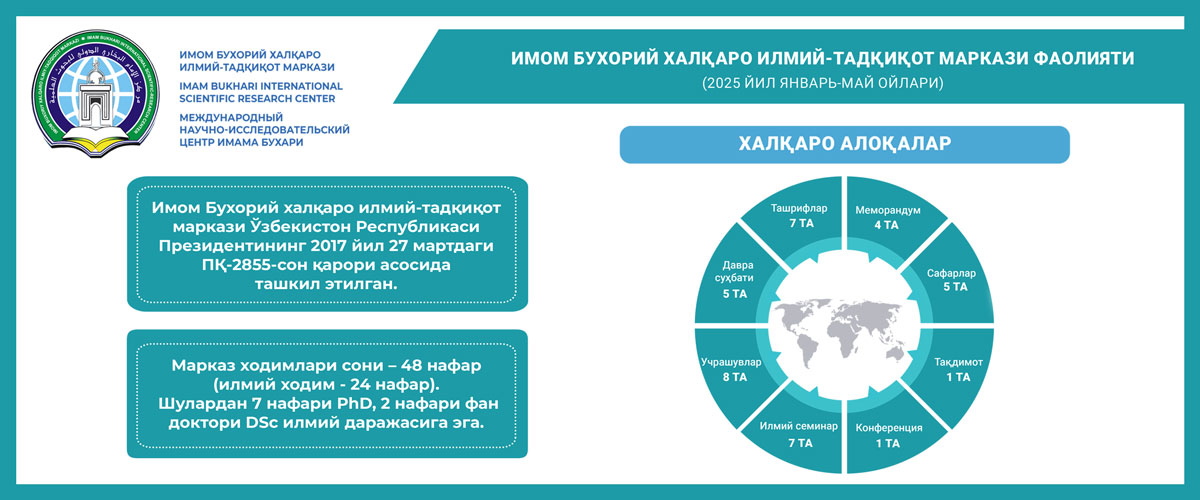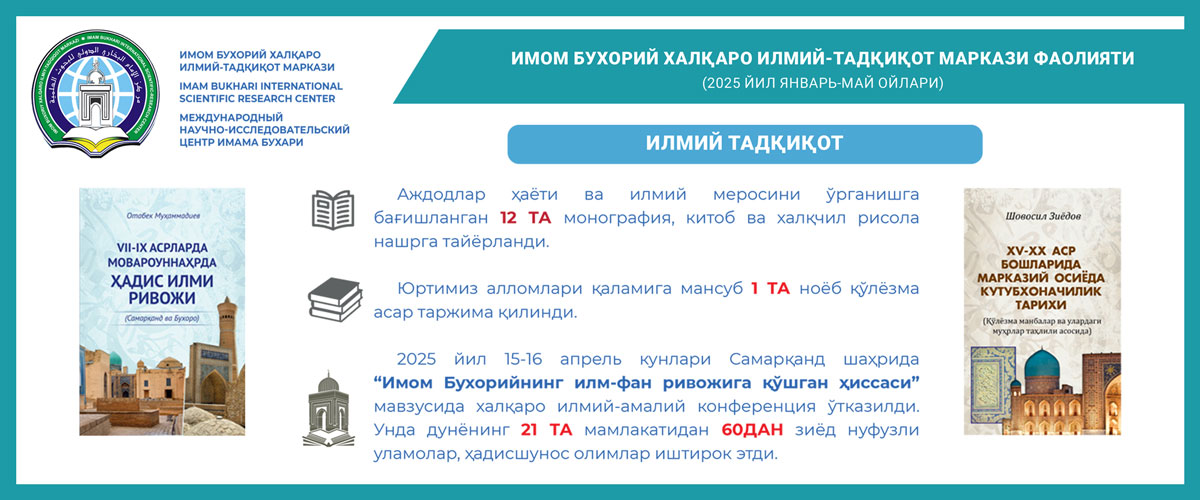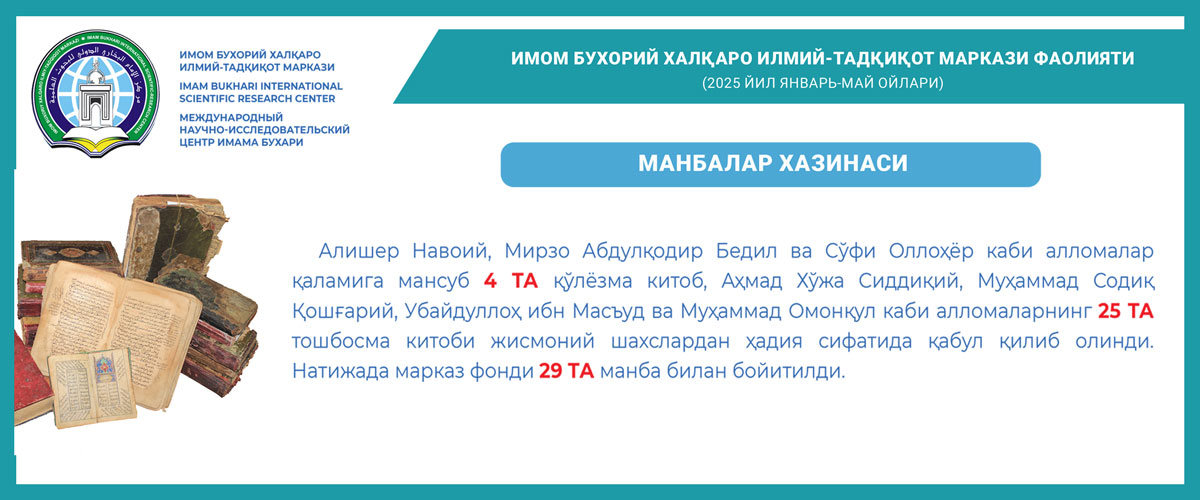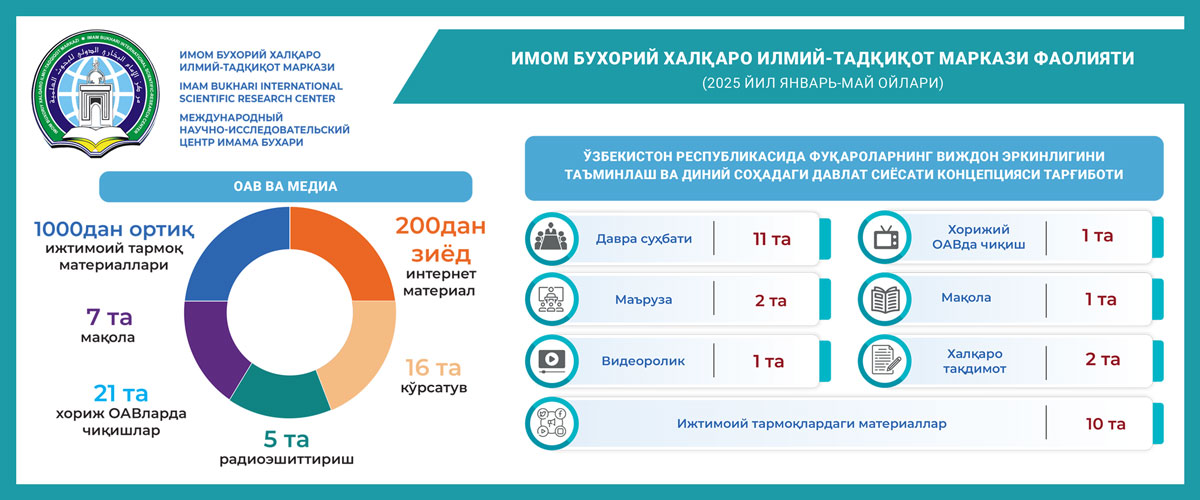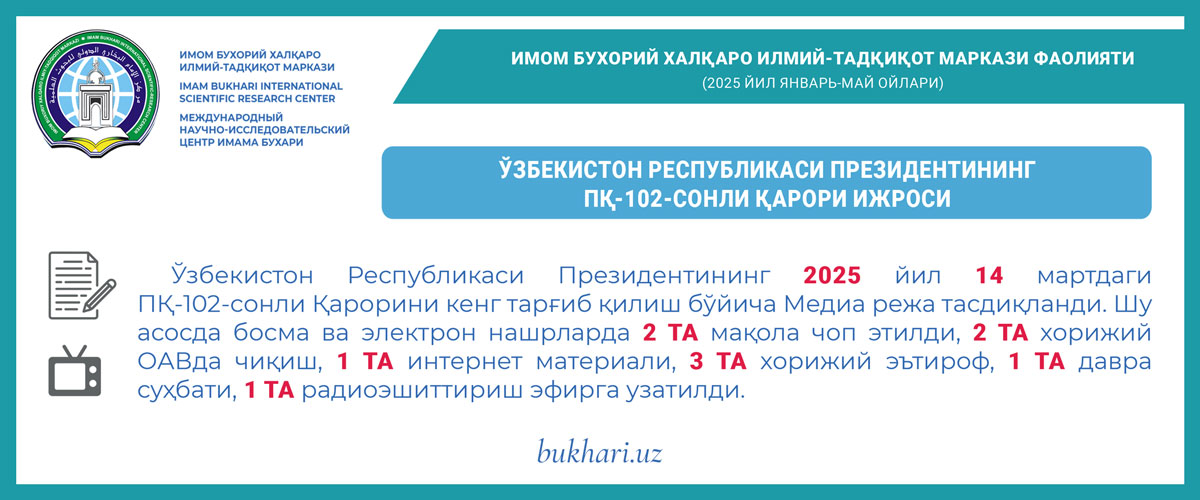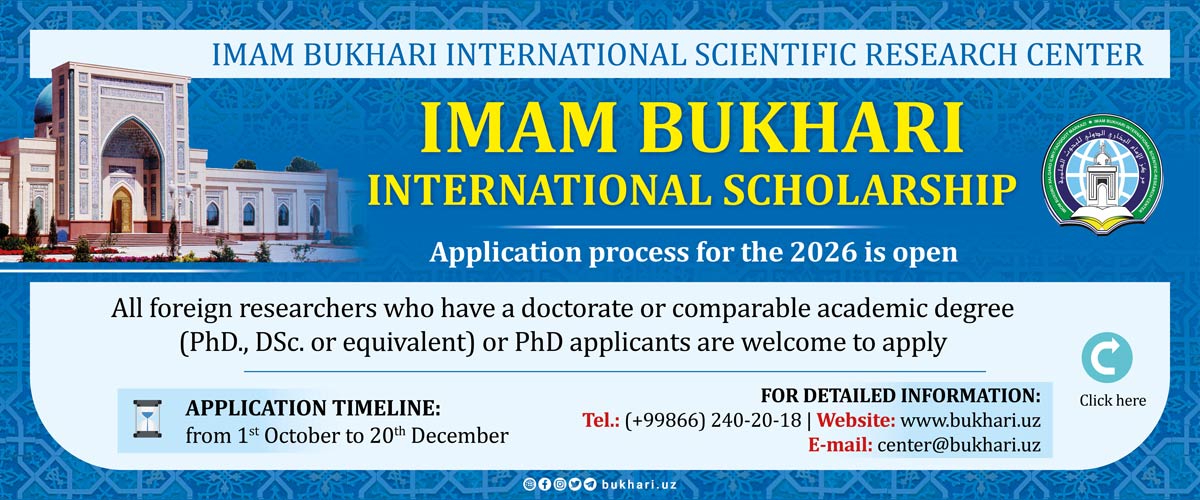The scientific research work titled as “Al-Adab al-arabiy fi iqlimi Khwarizm” (Arabian literature in Khoresm), which has recently been published in Baghdad by an Indian scholar Husain Toho of Palestine j contains lots of information dealing with the life and creative activities of the scholars, poets and writers who lived and created in Khoresm during the period from the time of invasion of Central Asia by Arabs up to the downfall of the rulers of Khoresm. While studying the materials of this research work, our attention was drawn to the information concerning the life and activity of a poet and a literary man from Khoresm al-Qasim ibn al-Husain, who lived in the second half of the 12th century and the first part of the 13th century. It seems to us that not a single source in modern literature has been written about the personality of al-Qasim ibn al-Husain yet, whereas in the historical sources, the life and creative activity of the poet al-Qasim ibn al-Husain were reflected in a number of research works.
His full name was Abu Muhammad al-Qasim ibn Husain ibn Amad al-Khoresmi and he was also known by the honourable title “Sadr al-fazail” (a leader of the learned people). He was born in Khoresm in 555 (according to the Islamic calendar) but it see ms strange that some sources mention the year 505. We do not have any information about his childhood and early years of life. He studied law and the Arabic language from Abdulfat Nasir ibn Abdusaid al-Matrazi, a well-known scholar of his time and an expert in matters of poetry and prose. As Bukhara was famous in the East at that time for its scientific and cultural centres, al-Qasim ibn al-Husain visited this sacred city in order to improve his knowledge.
Al-Qasim ibn al-Husain lived and created his literary works during the reign of the rulers of Khoresm (1097-1231). As is known from the history that during the last decade of their rule, the kings of Khoresm occupied a vast territory of the neighbouring countries and formed a great empire in the East. Because of this act, great positive changes and stages of development were seen in the economic and social fields of life, in trade and agriculture, especially in the cultural life of the people. Thanks to the attention paid by the rulers of the empire, science and education began to develop in Khoresm and other centres of culture as Samarkand and Bukhara. Scientific and cultural relations between these centres began to develop and it became common to have debates and heated discussions between the representatives of different branches of science and education, and it was natural that in search of knowledge and education, the students began to visit such scientific and educational circles. The fact that al-Qasim ibn al-Husain visited Holy Bukhara is a proof of our opinion.
It is noteworthy that during the reign of the rulers of Khoresm, there were special centres of education for the ordinary people of the city. For instance, in the “Dehqan” quarters of Bukhara, there was a library of rare manuscripts for the poor called “Dar al-fuqara” (a home for the poor). Thus, al-Qasim ibn al-Husain had his first education in Khoresm and then in Bukhara as a result of which he grew up a mature poet and a lfterary man.
A well-known Arabic traveller and geographer Yaqut al-Hamavi (1179-1229) visited most of the foreign countries as well as Khoresm. In his book “Mu’jam al-udaba” (An Encyclopaedia ot Literary Men), he writes about his visit to Khoresm and his stay at al-Qasim ibn al-Husain’s home. Greatly impressed by the maturity of his knowledge as well as the moral qualities of the host, he wrote the following lines: “No sooner had I stepped in his room than I began to feel a kind of tremble throughout my whole body; he seemed to me a man of great spiritual power and a good will; he was good-looking and a man of well behaviour. During our conversation, my soul was full of delight and admiration. Before his image I felt myself very weak and powerless”.
 Imom Buxoriy xalqaro ilmiy-tadqiqot markazi bukhari.uz
Imom Buxoriy xalqaro ilmiy-tadqiqot markazi bukhari.uz
